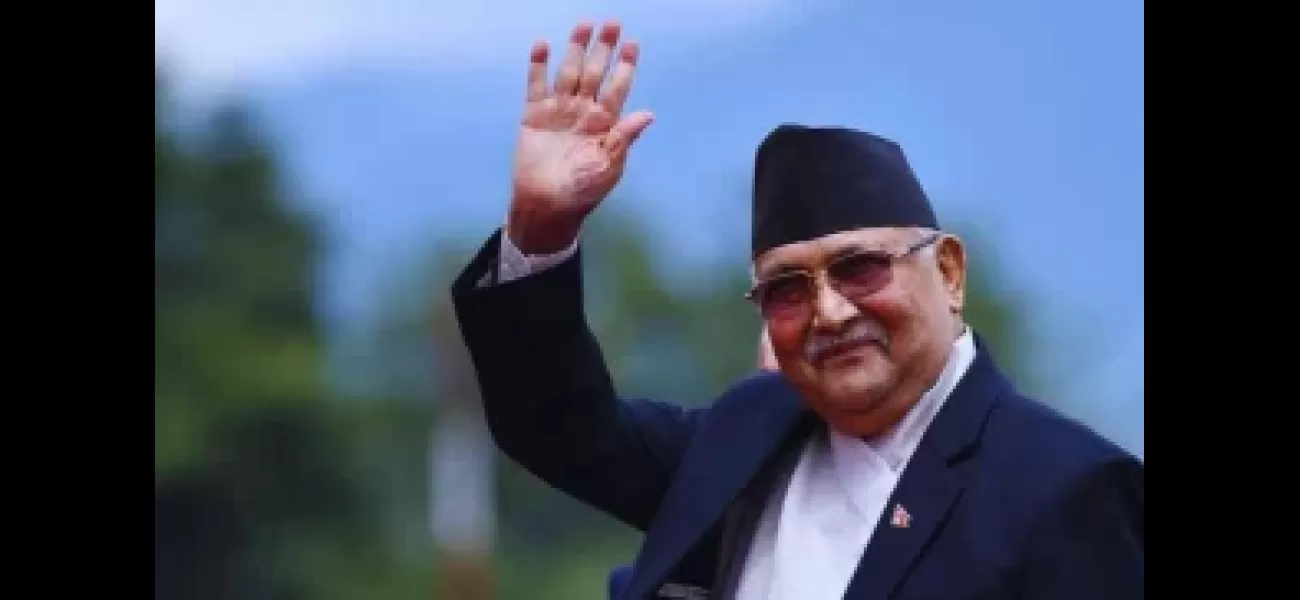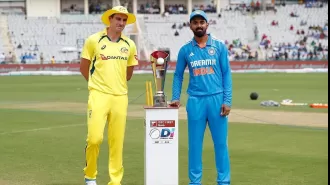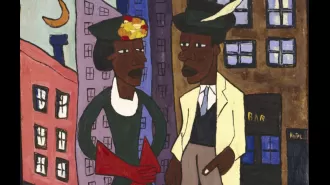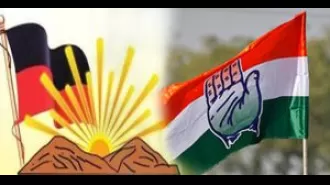A game of chance popular in Nepal.
Country with 14 governments in 16 years has a dysfunctional democracy where politicians prioritize personal gain over serving the people who elected them.
July 15th 2024.

In the last 16 years, Nepal has seen a constant rotation of 14 different governments, which is a clear indication of a failing democracy. It seems that the political parties are more concerned with their own interests rather than the welfare of the people who elected them. This is the situation in Nepal, a country that abolished its 239-year-old monarchy in 2008 and adopted a parliamentary system.
Currently, the country is preparing for a new coalition government under the leadership of KP Sharma Oli, after the previous Prime Minister, Pushpa Kamal Dahal, lost a vote of confidence in Parliament. This marked the end of his tumultuous 20-month term, during which he faced five no-confidence votes, with the last one being the final blow. In order to cling onto power, he constantly changed his alliances, but eventually, he was forced to either resign or prove his majority in Parliament. This decision was made after his largest ally, the liberal Communist Party of Nepal, led by Oli, withdrew their support last week.
Oli is no stranger to the game of politics and knows how to form coalitions in order to stay in power. He has been Prime Minister three times before and is now starting his fourth term. He recently struck a deal with the centrist Nepali Congress, which has given him enough seats to secure a majority in Parliament. As per this agreement, Oli will serve as Prime Minister for half of the remaining term, after which the former five-time Prime Minister, Sher Bahadur Deuba of the Nepali Congress, will take over for the rest of the period. Nepal's next general elections are scheduled for 2027.
In order to retain his position, Dahal needed at least 138 votes in the 275-member house, but his fate was sealed when he parted ways with Oli. In the end, only 63 out of the 258 lawmakers present in Parliament voted in his favor, while 194 voted against him and one abstained. During his third term as Prime Minister, which began in December 2022, Dahal changed his main coalition partner three times, which ultimately led to his downfall.
As expected, Oli's main opposition, the Nepali Congress, and the Communist Party of Nepal joined forces to criticize him before the vote of no-confidence. They claimed that his coalition was against democratic practices and expressed concerns that the new government may become regressive and authoritarian. However, in the world of Nepali politics, such grand statements hold little significance, as the country is still struggling to establish a stable democracy.
The politics of Nepal is closely monitored by its neighboring countries, India and China. India is likely to benefit from the presence of the Nepali Congress in the government, while China prefers a Communist government in power to serve its interests. Oli, being a shrewd leader, has previously maintained a balance between the two countries, although he is known to lean towards China in order to reduce Nepal's dependence on India.
Nepal has been plagued by a revolving door of aging Prime Ministers for the past 15 years, and the culture of horse-trading has created a perception that the government is out of touch with the pressing issues facing the country. Although Oli is a seasoned politician, he now faces new challenges as he takes on the role of Prime Minister once again. All eyes are now on the new government, with hopes that it will work for the betterment of the Nepali people and not succumb to autocratic tendencies, as it has the support of two major parties.
Currently, the country is preparing for a new coalition government under the leadership of KP Sharma Oli, after the previous Prime Minister, Pushpa Kamal Dahal, lost a vote of confidence in Parliament. This marked the end of his tumultuous 20-month term, during which he faced five no-confidence votes, with the last one being the final blow. In order to cling onto power, he constantly changed his alliances, but eventually, he was forced to either resign or prove his majority in Parliament. This decision was made after his largest ally, the liberal Communist Party of Nepal, led by Oli, withdrew their support last week.
Oli is no stranger to the game of politics and knows how to form coalitions in order to stay in power. He has been Prime Minister three times before and is now starting his fourth term. He recently struck a deal with the centrist Nepali Congress, which has given him enough seats to secure a majority in Parliament. As per this agreement, Oli will serve as Prime Minister for half of the remaining term, after which the former five-time Prime Minister, Sher Bahadur Deuba of the Nepali Congress, will take over for the rest of the period. Nepal's next general elections are scheduled for 2027.
In order to retain his position, Dahal needed at least 138 votes in the 275-member house, but his fate was sealed when he parted ways with Oli. In the end, only 63 out of the 258 lawmakers present in Parliament voted in his favor, while 194 voted against him and one abstained. During his third term as Prime Minister, which began in December 2022, Dahal changed his main coalition partner three times, which ultimately led to his downfall.
As expected, Oli's main opposition, the Nepali Congress, and the Communist Party of Nepal joined forces to criticize him before the vote of no-confidence. They claimed that his coalition was against democratic practices and expressed concerns that the new government may become regressive and authoritarian. However, in the world of Nepali politics, such grand statements hold little significance, as the country is still struggling to establish a stable democracy.
The politics of Nepal is closely monitored by its neighboring countries, India and China. India is likely to benefit from the presence of the Nepali Congress in the government, while China prefers a Communist government in power to serve its interests. Oli, being a shrewd leader, has previously maintained a balance between the two countries, although he is known to lean towards China in order to reduce Nepal's dependence on India.
Nepal has been plagued by a revolving door of aging Prime Ministers for the past 15 years, and the culture of horse-trading has created a perception that the government is out of touch with the pressing issues facing the country. Although Oli is a seasoned politician, he now faces new challenges as he takes on the role of Prime Minister once again. All eyes are now on the new government, with hopes that it will work for the betterment of the Nepali people and not succumb to autocratic tendencies, as it has the support of two major parties.
[This article has been trending online recently and has been generated with AI. Your feed is customized.]
[Generative AI is experimental.]
0
0
Submit Comment





